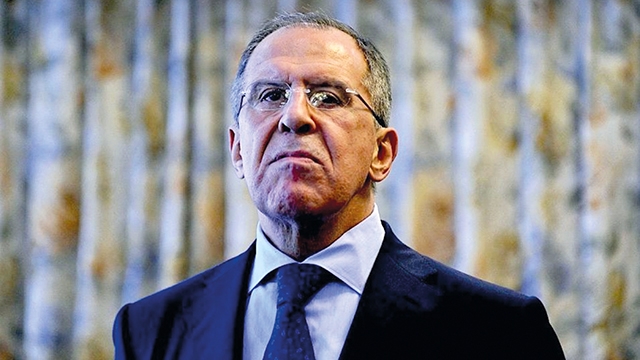Will Georgian Dream Let Lavrov Back in?
Op-Ed
Georgian Dream (GD) is facing a new dilemma. This time, it is not the scandalous Gavrilov that is the reason, but another Sergey with a much higher official status. Instead of the MP from the Russian Duma, GD will have to deal with the Russian Minister of Foreign Affairs. What makes the situation even more difficult is that where on June 20, 2019, MP Sergey Gavrilov was invited by the Georgian Dream, Sergey Lavrov will likely be able to visit Tbilisi even without their invitation.
The glass palace hasn’t decided yet if they should violate Georgian legislation and stick with the responsibility they’ve taken on internationally. Three months from now, around May 14-15, Georgia, as the Chair of Council of Europe’s (CoE) Committee of Ministers, will be hosting the 130th CoE Committee of Ministers in Tbilisi. The ministerial will consist of Foreign Affairs Ministers, among them a delegation from Russia and its fixed head Sergey Lavrov. And this is where the main puzzle begins. Russian minister Lavrov has violated the Georgian ‘Law on Occupied Territories of Georgia’ a number of times by travelling to the occupied territories directly, not through the lands controlled by Official Tbilisi. Not only has he violated Georgian legislation, but he is also regarded by many as one of the main architects of the 2008 occupation.
Minister Lavrov, just like his predecessors Yevgeny Primakov and Igor Ivanov was born in Georgia. Before his school years, Lavrov lived in the Sololaki district of Tbilisi, in the house at the corner of Chaikovski and Iashvili streets. On March 21, 1950, the baby boy was born into Vladika Kalantarian’s family and named Sergo. His father died when he was six, which is when he moved from Tbilisi to Moscow, where his mother started her second family. It is still unknown where the future Minister of Foreign Affairs got his surname Lavrov, whether from his mother or stepfather, since the Russian media is purposely quiet on the issue, especially about his Georgian roots.
And yet he has kept up his connection with Georgia in his political career, just as Primakov and Ivanov did. As early as 1993, when Abkhazia was already occupied, it was Lavrov who coordinated the issue, as he did the whole Russian policy with regards to the former Soviet countries. The war of 2008, as well as the phone discussions between Lavrov and US State Secretary Condoleezza Rice that went public, have somehow turned into the symbolic crown of Russian imperialistic politics. To put it bluntly, Lavrov is the éminence grise and the right hand of President Putin, and perhaps this is why his persona is such a headache to the Georgian Dream government.
Following the 2008 August War, diplomatic relations between Russia and Georgia were terminated. In the 12 years since, not one of Lavrov’s high-level officials has visited Georgia proper. The visit and the speech of Gavrilov last June, in the framework of the Orthodox Forum, was met with thousands protesting outside Parliament and the ultimate resignation of its head Irakli Kobakhidze. Whether Lavrov’s visit will be followed by any resignations will become known in May. President Zurabishvili spoke from behind the CoE tribune about taking on the responsibility of CoE chairmanship, and gave guarantees that Lavrov’s visit to Tbilisi would take place peacefully. The opposition claims quite the contrary, saying that there is no place for Lavrov in Georgia. It is hard to tell whether the opposition will in fact be able do anything about it.
While nothing is certain about the upcoming May events, the only thing that is clear is that the ministerial that was to have brought “bonus points” for the Georgian Dream’s electoral campaign and serve as a visible illustration of the party’s foreign affairs success has turned into a disaster that will be hard to overcome.
By Zaza Jgarkava
Russian Foreign Minister Sergei Lavrov. Source: AP












